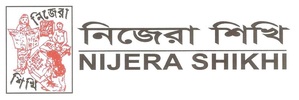EffectivenessResearch undertaken in 1997 by Andy Cawthera, an economist and educationalist, indicated that the methods Nijera Shikhi used were likely to be very effective and enabled people to bring about substantial changes in their lives. The literacy skills of a sample of learners were tested. The best estimate was that 73% of those starting the course retained functional literacy one year after they had completed their course. A follow-up study undertaken in 2000 indicated that this was also likely to be the case five years post course completion.
More importantly, the course was designed to promote self-help and entrepreneurship: the research indicated that the income / productivity of male learners increased by about 80% (Tk4,760, £67, $108[1]) and that of female learners increased by about 200% (TK 1560, £22, $35). At the time GDP / capita was $340[2]. It is likely that where both a husband and wife become literate their household income / productivity roughly doubled. In addition to this there were strong indicators of additional benefits in child education, family planning, health, self-esteem and a knowledge of human and women's rights. Adult literacy tends to 'auto-target' the poorest people in a community, therefore although these increases are small in money terms they are highly significant to the individuals concerned who tend to be amongst the poorest people in a community. This is also one of the reason why effective adult literacy can be highly effective in poverty alleviation. [1] 1997 exchange rate of £1 = Tk.71 and $ = Tk.44 [2] World Bank data at http://data.worldbank.org/indicator/NY.GDP.PCAP.CD?page=3 |
|
|
- Welcome
-
Nijera Shikhi Bangladesh
-
Projects
>
- Adult Literacy
- Pre-Primary Education
- Rev. John P Hastings School
- Child Club
- Basic Education for Hard To Reach Urban Working Children (BEHTRUWC)
- Awareness Building Programme
- HIV-AIDS Prevention Programme
- Project Awareness Building program on Natural Calamities and Disaster Management
- Revolving Loan Program
- Arsenic Mitigation Program
- Mini Library and Book Bank
- Sisimpur Outreach Project
- 2013 Annual Report
-
Projects
>
-
Nishi-Adult Literacy
- Donate


